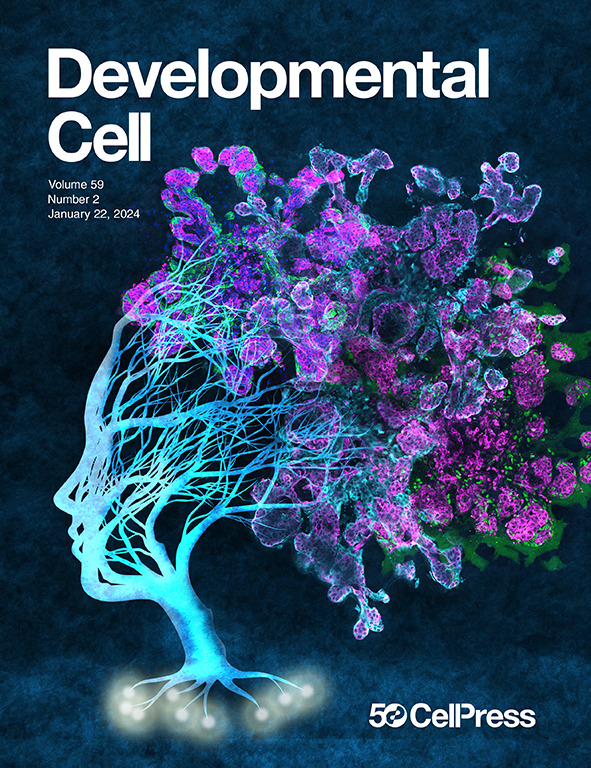PI3K/AKT signaling controls ICM maturation and proper epiblast and primitive endoderm specification in mice
IF 10.7
1区 生物学
Q1 CELL BIOLOGY
引用次数: 0
Abstract
The inner cell mass (ICM) of early mouse embryos is specified into epiblast (Epi) and primitive endoderm (PrE) lineages during blastocyst formation. The antagonistic transcription factors (TFs) NANOG and GATA-binding protein 6 (GATA6) in combination with fibroblast growth factor (FGF)/extracellular-signal-regulated kinase (ERK) signaling are central actors in ICM fate choice. However, what initiates the specification of ICM progenitors into Epi or PrE and whether other factors are involved in this process has not been fully understood yet. Here, we show that phosphoinositide 3-kinase (PI3K)/protein kinase B (AKT) is constitutively active during preimplantation development. Using pharmacological inhibition, we demonstrate that PI3K/AKT enables the formation of a functional ICM capable of giving rise to both the Epi and the PrE: it maintains the expression of the TF NANOG, which specifies the Epi, and confers responsiveness to FGF4, which is essential for PrE specification. Our work thus identifies PI3K/AKT signaling as an upstream regulator controlling the molecular events required for both Epi and PrE specification.

PI3K/AKT 信号控制小鼠 ICM 的成熟以及上胚层和原始内胚层的正常分化
小鼠早期胚胎的内细胞团(ICM)在囊胚形成过程中被分化为上胚层(Epi)和原始内胚层(PrE)。拮抗转录因子(TF)NANOG 和 GATA 结合蛋白 6(GATA6)与成纤维细胞生长因子(FGF)/细胞外信号调节激酶(ERK)信号结合,是 ICM 命运选择的核心参与者。然而,是什么启动了 ICM 祖细胞向 Epi 或 PrE 的分化,以及是否有其他因素参与了这一过程,目前还不完全清楚。在这里,我们发现磷脂肌醇3-激酶(PI3K)/蛋白激酶B(AKT)在胚胎植入前的发育过程中具有组成性活性。通过药理抑制,我们证明了 PI3K/AKT 可使功能性 ICM 形成,从而产生 Epi 和 PrE:它可维持 TF NANOG 的表达,从而指定 Epi,并赋予对 FGF4 的响应性,而 FGF4 对 PrE 的指定至关重要。因此,我们的工作确定了 PI3K/AKT 信号是控制 Epi 和 PrE 规范化所需的分子事件的上游调节因子。
本文章由计算机程序翻译,如有差异,请以英文原文为准。
求助全文
约1分钟内获得全文
求助全文
来源期刊

Developmental cell
生物-发育生物学
CiteScore
18.90
自引率
1.70%
发文量
203
审稿时长
3-6 weeks
期刊介绍:
Developmental Cell, established in 2001, is a comprehensive journal that explores a wide range of topics in cell and developmental biology. Our publication encompasses work across various disciplines within biology, with a particular emphasis on investigating the intersections between cell biology, developmental biology, and other related fields. Our primary objective is to present research conducted through a cell biological perspective, addressing the essential mechanisms governing cell function, cellular interactions, and responses to the environment. Moreover, we focus on understanding the collective behavior of cells, culminating in the formation of tissues, organs, and whole organisms, while also investigating the consequences of any malfunctions in these intricate processes.
 求助内容:
求助内容: 应助结果提醒方式:
应助结果提醒方式:


